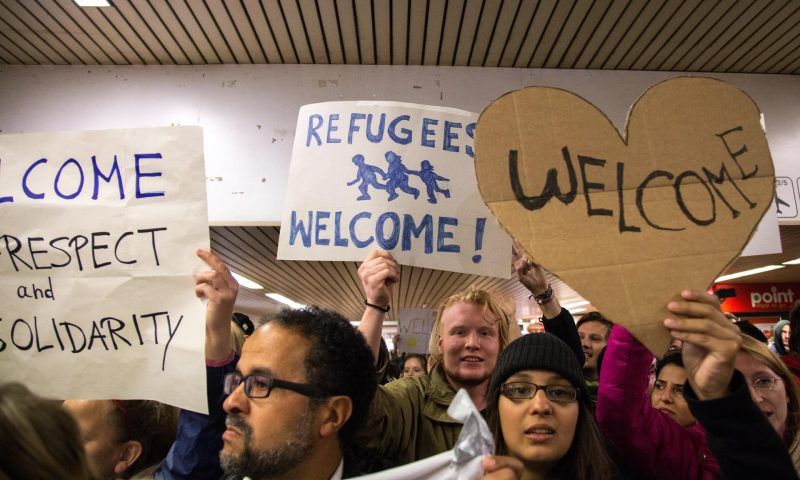
We still do not know exactly what went on at Cologne’s central station on New Year’s Eve. Police have recorded 379 allegations of violence, 40% of them sexual assaults, with two reports of rape. They have identified 31 suspects, who include at least two Germans, a Serb, an American and 18 asylum seekers from the Middle East and north Africa.
That’s all we know for sure. But the public still hasn’t recovered from the headlines last Monday saying that a crowd of 1,000 refugees had mobbed German women. Since then, some of us have been searching for a source whose testimony we can trust.
The police, whose local chief was fired on Friday, aren’t exactly helping. An officer claimed a man tore up the papers identifying him as an asylum seeker in front of a policeman, shouting: “You can’t do anything to me, I can get a new one tomorrow”. The story went viral. Four days later, it turned out that it couldn’t have been an asylum seeker’s papers, because these are plastic cards and can’t be torn. It’s just one of several examples highlighting a hysterical mood that is making a monster out of what was already a nightmare.
One million migrants arriving in Germany in 2015, the Paris attacks, the far-right parties Pegida and AfD growing – in some ways, as tensions over immigration increased, it seemed everyone was waiting for a major incident. For the last six months, every little punch-up in a refugee camp has been news, an attempt to create a horror story about violence in the “other culture”. However, despite the propaganda, German Willkommenskultur (welcome culture) survived largely unscathed, caring for refugees and teaching freedom and democracy.
But the shocking events in Cologne seem to have cracked what was always fragile. Unsurprisingly, rightwing commentators – who over the year have been talking of refugees as if they were terrorists – are reacting gleefully to the events. Have they won?
No. Not yet. It is completely normal to be appalled by what seems to have happened in Cologne. And it is completely normal to demand that every criminal has to be punished. It is also completely normal to discuss every fear caused by their behaviour. But I have another fear.
Too often in the past few days I have heard the Willkommenskultur-Germans saying they feel “exploited”, “abused”, “cheated”. We know this behaviour. It’s like angry parents whose children have got into trouble: “I did everything for you and what do you do?” As every parent, every German, has to learn: just like every child, every refugee is an individual. Not every refugee will study hard and become a doctor. No, some refugees will get drunk on New Year’s Eve and make a whole lot of mess.
I don’t want to trivialise sexual attacks. And I don’t want to deny the possibility that some people from the Middle East may have greater problems with women and alcohol than others. Nobody ever said that the refugees, even when they were wrapped in insulation blankets after arriving over the Mediterranean, were all angels. You’re sure to find bigots, antisemites and criminal gangs among them, just as you’ll find racists, rapists and arsonists among the German population (there were more than 200 arson attacks on refugee accommodation in Germany last year).
But my fear is that Willkommenskultur could end up as nothing more than a slogan. The people who always wanted it to fail, who believe in a Germans-only state, are abusing the fears and insecurities we all have over the background of the new arrivals. And more than that, they are abusing the dozens of women who were victims of assault on New Year’s Eve.
Doris Akrap was born and raised in Flörsheim near Frankfurt, where her father settled from Yugoslavia. She studied cultural and religious science in Berlin and works as a journalist and editor of the Berlin based German daily Die Tageszeitung.
